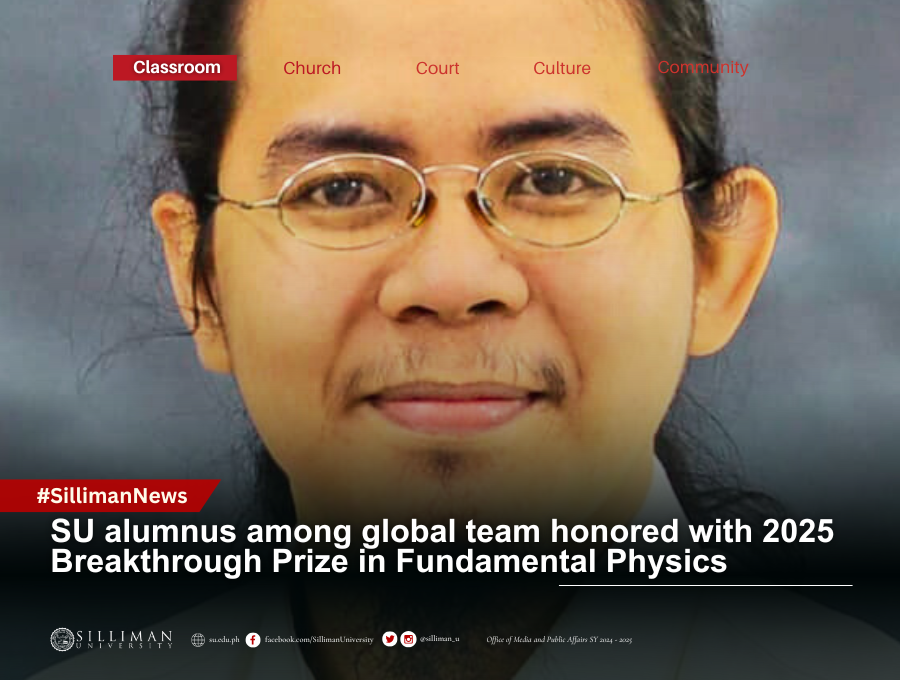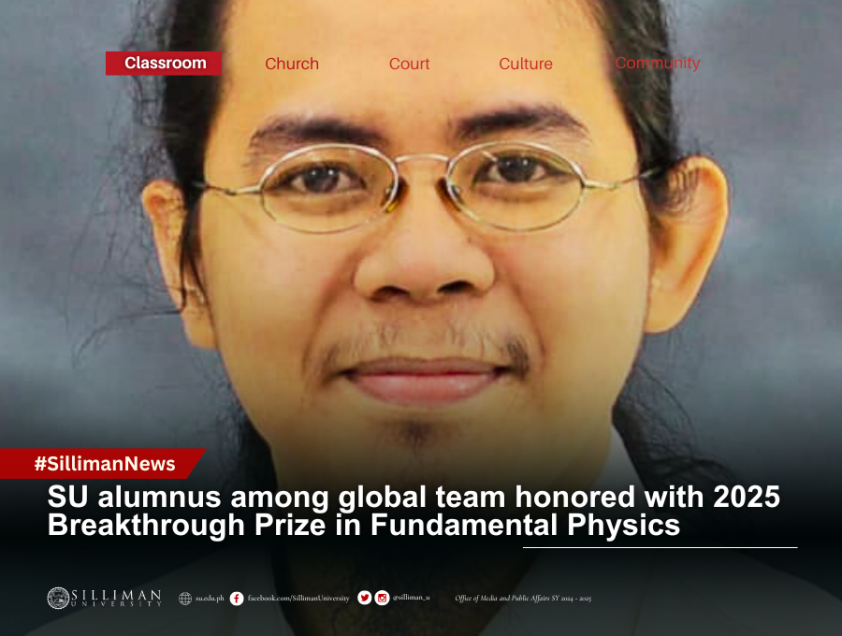
SU alumnus among global team honored with 2025 Breakthrough Prize in Fundamental Physics

Dr. Marvin M. Flores, a physicist from the University of the Philippines Diliman and Silliman University (SU) alumnus, is among thousands of researchers worldwide recognized with the prestigious 2025 Breakthrough Prize in Fundamental Physics.
Presented to the ATLAS Collaboration at CERN’s Large Hadron Collider (LHC), along with its sister experiments ALICE, CMS, and LHCb, the honor highlights the collaborations’ groundbreaking contributions to particle physics, particularly through discoveries like the Higgs boson and advanced studies of the universe’s fundamental components.
ATLAS, one of the world’s largest and most complex scientific instruments, is a 40-meter-long, 25-meter-tall particle detector designed to explore the smallest building blocks of matter and the forces that govern them. It tracks particles from high-energy collisions and has played a central role in expanding knowledge beyond the Standard Model of physics.
“The Breakthrough Prize is a testament to the dedication and ingenuity of the ATLAS Collaboration and our colleagues across the LHC experiments,” said ATLAS Spokesperson Stephane Willocq. “This prize recognises the collective vision and monumental effort of thousands of ATLAS collaborators worldwide.”
Since 2021, the National Institute of Physics (NIP) at UP Diliman has actively participated in ATLAS research, particularly in modeling and simulation work related to physics beyond the Standard Model (BSM). Dr. Flores, who leads the Philippine ATLAS group, emphasized the significance of the recognition.
“Our team’s work on BSM modeling and simulation exemplifies the innovation driving ATLAS forward,” he said. “This recognition affirms the impact of our contributions and inspires us to continue exploring the universe’s most fundamental questions.”
The ATLAS Collaboration continues to look ahead, as the third operational run of the LHC is ongoing and preparations for the High-Luminosity LHC upgrade are underway. The NIP’s High Energy Physics & Phenomenology (HEP-PH) team, composed of 15 physicists and students, is actively preparing for the next phase of ATLAS.
Though their current contributions are primarily theoretical, the group is expanding its experimental work through the newly formed ATLAS Philippine Cluster, including researchers from nationwide institutions like Silliman University.
“We are now preparing the ATLAS detectors of the future — designed to harness these unprecedented data and further push our understanding of the universe’s fundamental building blocks,” Willocq added.
The Breakthrough Prize, often referred to as the “Oscars of Science,” is among the world’s most generous science awards, celebrating achievements in fundamental physics, life sciences, and mathematics.



